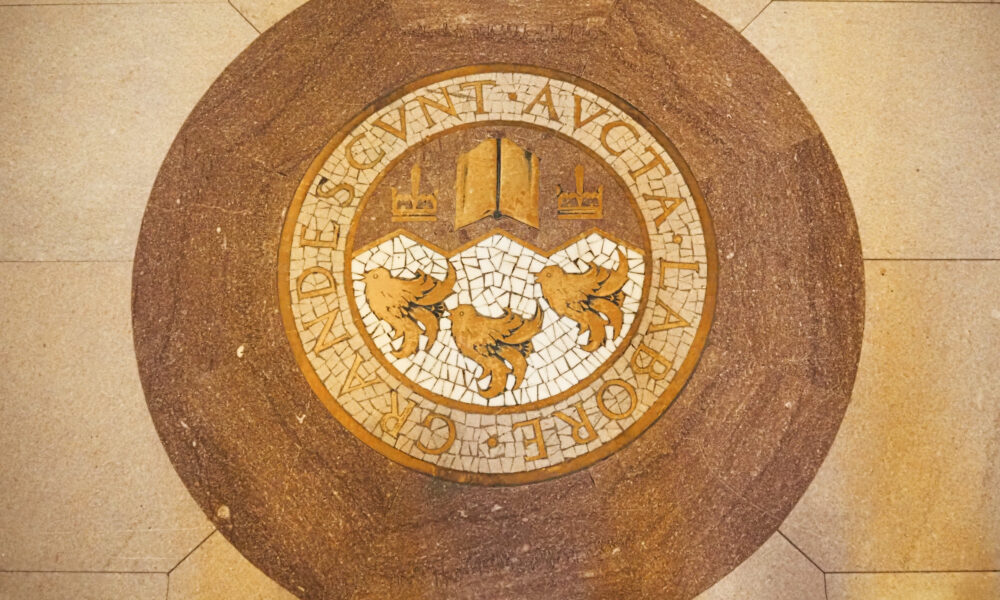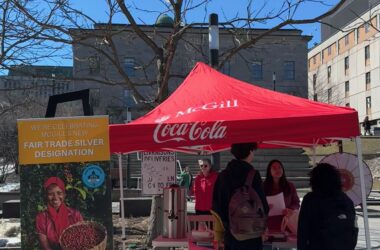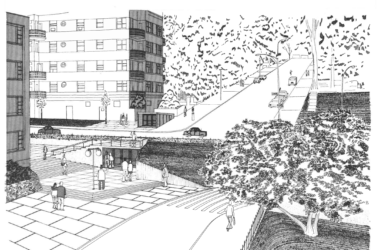Nobody tell the Office québécois de la langue française, but if you keep a careful eye out, there are a handful of improperly-francized signs hiding around the McGill campus. For once, though, they’re not in English—and no, it’s not the Italian “pasta” advertised at the Royal Victoria College Dining Hall either. This time, the culprits are older than Quebec itself—or French, for that matter: This time it’s Latin and Greek quotes. Although including Latin and Greek inscriptions in modern construction is rare, if you look closely at some of the older buildings on campus, you can still spot several ancient phrases on building stones and above archways.
Grandescunt aucta labore
This is likely the most common Latin phrase you can spot on campus, as it is McGill’s official motto and part of the university’s coat of arms. Translating to “By work, all things increase and grow,” the quote compliments McGill’s official mascot: The martlet, a mythical bird that has no feet and can never stop flying, symbolizing industry and studiousness. Taken together, the motto and mascot paint quite a picture of the ideal McGill student’s work-life balance. You can see this inscription inside the Arts Building, over the door to the James Administration Building, and in the lobby of Sherbrooke 680.
αριστον μεν υδωρ
One of the few Greek inscriptions on campus, this is a historically-attested phrase meaning “Water is the best of all things,” and suitably appearing over the drinking fountain on the first floor of the Birks Building. It is attributed to the Ancient Greek poet Pindar and can also be found in the town of Bath, England, inside its 18th-century pump room supplying a Roman-style bath.
Concordia salus
While technically on campus, this phrase is actually part of Montreal’s official coat of arms. It appears above an archway of the McTavish Reservoir & Pumping Station, visible from Ave. du Dr-Penfield. The Latin phrase translates roughly to “Salvation through harmony,” and was also the inspiration for choosing the name “Concordia University” when Sir George Williams University and Loyola College merged in 1974.
καλλιστον εφοδιον τωι γηραι η παιδεια
This Greek inscription actually appears twice on campus, once above the fireplace in the Birks lounge, and once over the inside of the main entrance to the Arts Building. It translates to “The finest provision for old age is education,” and is attributed to Aristotle, as quoted by Diogenes Laertius in his Lives of Eminent Philosophers.
Nosce te ipsum
Unlike most of the other phrases on this list, Nosce te ipsum is a fairly recent addition to the McGill campus. Located in the Strathcona Anatomy and Dentistry Building as part of an exhibition by the Maude Abbott Medical Museum, the quote can be found in several old fire-extinguisher boxes in the stairwells and hallways. The expression means “Know thyself” and was popular in both Latin and Ancient Greek philosophical texts. During the Renaissance, it became common to use this quote in medical texts, with the mantra symbolizing the quest to understand the human body more deeply.
Hic est locus ubi mors resurgens rediviva est
If you look up at the Duff Medical Building from Ave. des Pins, you’ll find this bold assertion over the top of an archway. Proudly declaring, “Here is the place where death arises to new life,” this statement reflects the optimistic, but often arrogant, tone of the medical profession in the early twentieth century. The inscription dates back to the original construction of the building in the 1920s.









